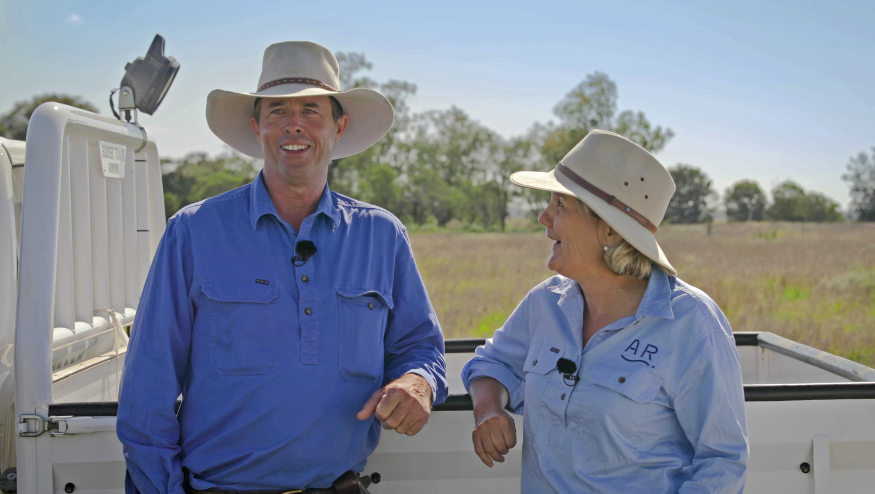RIC loan helps cattle farm prepare and recover from drought
Queensland cattle farmers Tom and Antoinette Archer hope recent investment in their soil will improve their drought resilience, with help from a RIC loan.
The Archers run trade cattle at Rexton, north of Goondiwindi, and felt the full brunt of the drought in 2018-19 after having to destock much of their herd.
“It was the driest period in our district for 100 years,” Tom said.
“We do have very dry periods but this was an unusual one – we got down to a quarter of our usual rainfall.”
Hearing about RIC loans through the industry, the Archers decided to apply for a RIC loan to take advantage of RIC’s concessional interest rate and interest-only terms for the first five years.
“At that point in time, our turnover was low, so our cash flow was low,” Tom said.
The successful loan application enabled the Archers to free their cash flow by saving on interest payments and help cover key running costs on their property.
As part of a longer-term project, greater cash flow helped the Archers to improve the soil quality on the property and address the amount of bare ground, low plant species diversity and high water runoff.
By planting legumes and sub-tropical grasses, creating more, smaller paddocks and timing grazing since 2000, the Archers have been able to steadily build the amount of carbon stored in their soil – so much so, they were granted Australian Carbon Credit Units (ACCUs).
An ACCU is a credit unit issued to a person by the Clean Energy Regulator - each ACCU issued represents one tonne of carbon dioxide equivalent stored or avoided by a project.
They have been able to increase the carrying capacity on parts of the property from 8 stock days a hectare to more than 20.
They are now able to trade ACCUs as a secondary source of income but Tom said it had also improved their drought resilience.
“While the RIC loan wasn’t the reason we decided to go into carbon, indirectly it did help us make that investment because it gave us more cash flow we didn’t otherwise have,” he said.
“We’ve seen improvements in our ground cover and our water holding capacity."
"Obviously if you’re holding more water in the soil, drought affects you more slowly so in the event of another drought, we’re hoping we might go into drought more slowly and recover a bit quicker.
“There is a cost involved but if we can realise an extra income, it’s good for our business and also insulates against drought because we’re not solely relying on livestock.”

